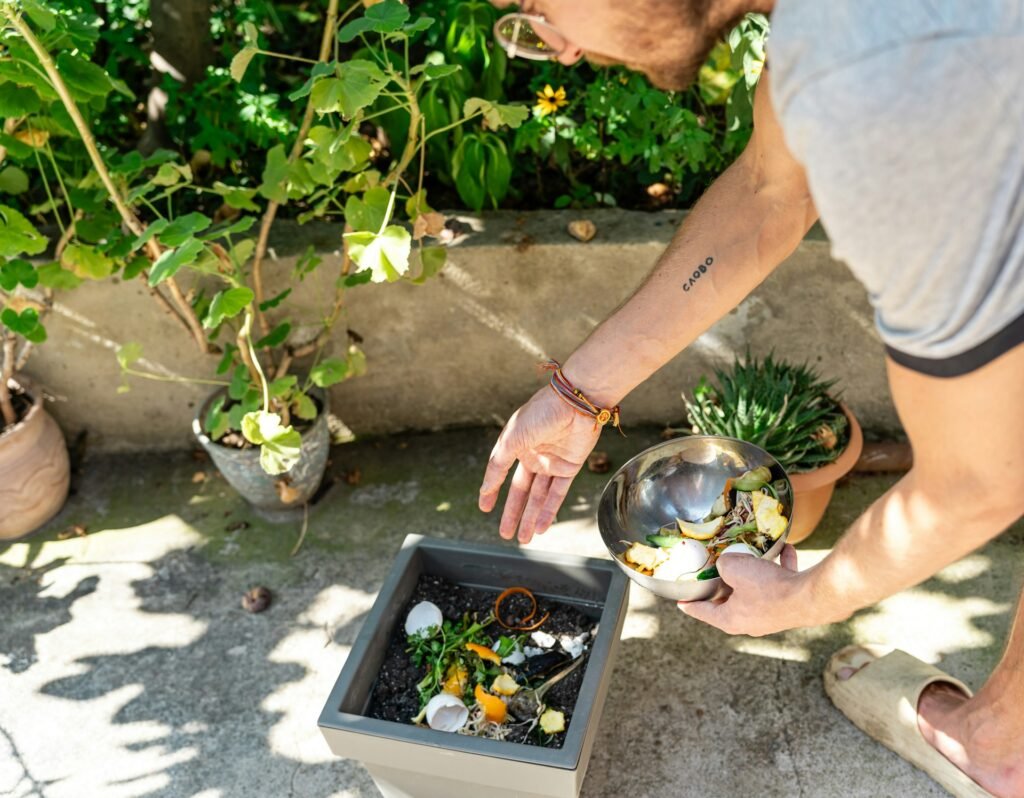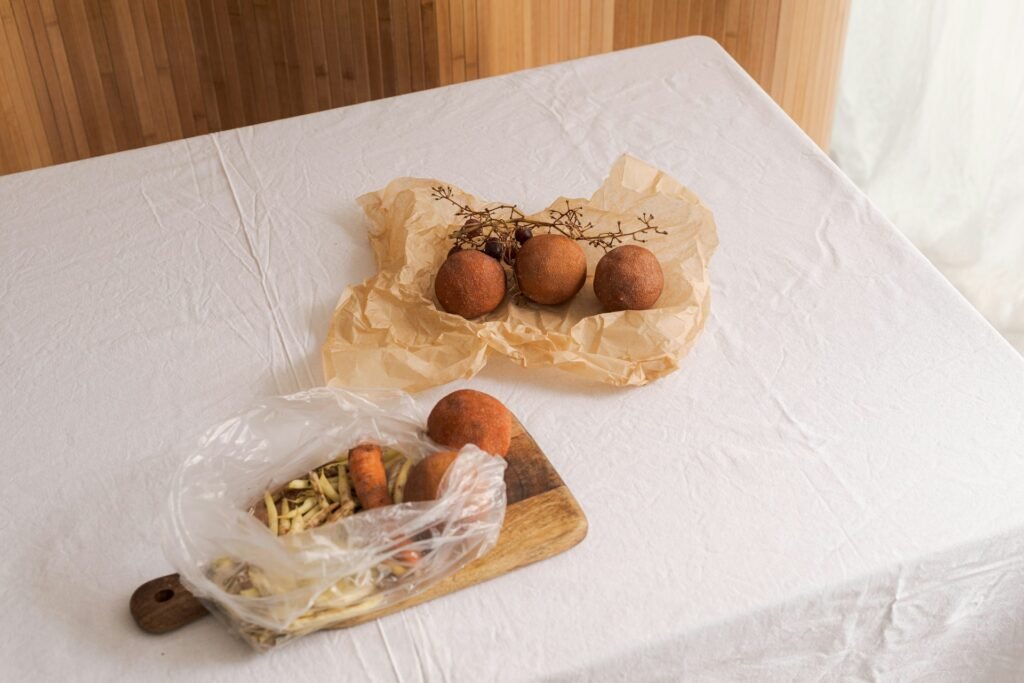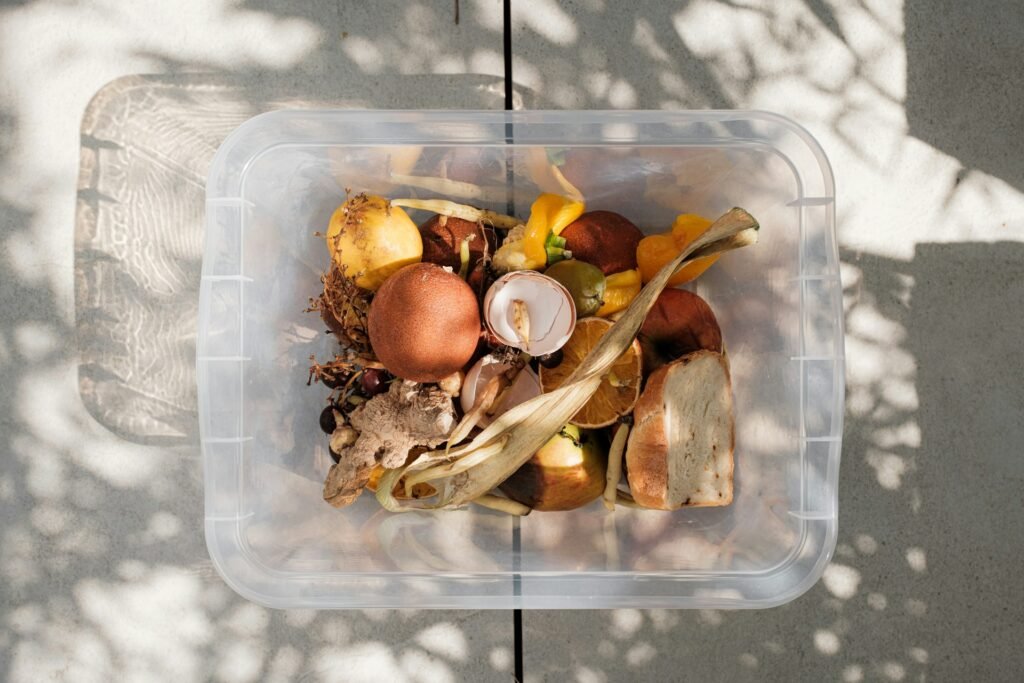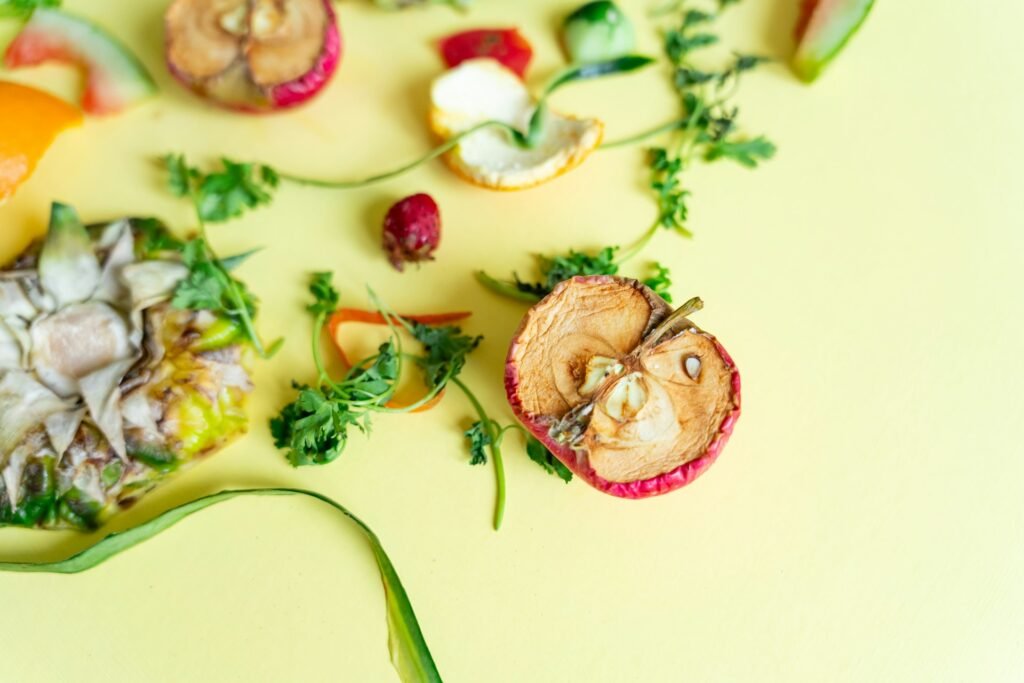Transforming kitchen scraps into nutrient-rich compost is a simple yet effective way to enhance your garden’s health. This guide will walk you through creating a flourishing compost system using everyday waste, turning leftovers into valuable soil amendments with ease.
What Is Kitchen Waste Composting?
Kitchen waste composting is converting organic materials like food scraps into compost from kitchen waste, which serves as a powerful soil amendment. By placing these materials into a composting bin, you encourage decomposition that results in enhanced plant growth.
Setting Up Your Composting System
Whether you opt for indoor composting or enriching outdoor garden beds, integrating methods like bokashi composting, which uses fermented food, can expedite the process. Remember to seal the container to maintain the ideal conditions for decomposition.
Preparing the Right Environment for Composting
Bokashi composting is an anaerobic process that requires a sealed container and a specific inoculated bran to ferment kitchen waste efficiently, creating a quick and odorless way to produce compost.
For a healthy compost, balance nitrogen-rich greens like vegetable scraps with carbon-rich browns such as leaves or straw, ensuring a nutrient-dense final product.
Adding wood chips can help maintain the correct moisture level in your compost pile, absorbing excess water and allowing for proper aeration.

Selecting a Composting Method Suitable for Your Home
Bokashi composting may be the perfect solution for those with limited space, as it is compact and efficient in breaking down kitchen waste.
Backyard Composting: Bins vs. Piles
Backyard enthusiasts can choose between compost bins and open piles. Bins contain composting materials, promoting a faster decomposition process, while piles are more passive and can take up more space.
Indoor Composting with a Bokashi Bin
Indoor composting with a bokashi bin is an ideal solution for apartment dwellers or those with limited outdoor space. This method efficiently ferments kitchen waste, producing compost ready for incorporation into soil or garden beds.
Vermicomposting: The Power of Worms
Vermicomposting harnesses the power of worms to transform kitchen scraps into a potent soil amendment. By adding organic material to a worm bin, the resulting worm composting process enriches the soil with beneficial nutrients.
Trench Composting: Burying Waste Directly
Trench composting involves burying compost from kitchen waste directly into the ground, allowing organic materials to decompose naturally. This method enriches the soil, promotes plant growth, and can be applied in garden beds or composting bins.
The Composting Process: From Scraps to Soil
The journey from everyday kitchen leftovers to fertile soil is a natural cycle that benefits both your garden and the environment.
Adding Kitchen Waste to Your Compost
Integrating kitchen waste into your compost is a straightforward process. Begin by ensuring a balanced mix of green and brown materials, where green refers to nitrogen-rich scraps like vegetable peelings, and brown to carbon-rich items like dried leaves. Layer these in your compost bin, alternating between greens and browns to create a diverse and nutritious blend for microorganisms to thrive.
Maintaining Your Compost Pile for Optimal Breakdown
To foster a healthy decomposition environment, monitor your compost regularly. The bokashi system, a method of fermenting kitchen waste before adding it to your compost, can accelerate the process. Otherwise, maintain a steady addition of both green and brown materials, and ensure they are well-mixed to provide the necessary aeration for organic matter to break down efficiently.
Regular aeration is key to a successful composting process. By turning the pile frequently, you introduce oxygen that helps break down organic matter. If you’re using wood chips as part of your brown materials, they can create air pockets in the compost to further enhance airflow and facilitate the decomposition process.
Monitoring Temperature and Moisture
Healthy compost requires a delicate balance of warmth and moisture. The ideal temperature should be warm to the touch, indicating microbial activity. Moisture is equally important; your compost should feel like a wrung-out sponge. Too dry, and the decomposition stalls; too wet, and you risk creating an anaerobic environment that slows down the process.
Troubleshooting Common Composting Issues
Composting at home may encounter issues such as odors or pests, but these can often be resolved by adjusting the balance between green and brown materials and ensuring the compost is turned regularly.
Managing Unpleasant Odors
Unpleasant odors usually result from an excess of green materials and insufficient aeration. To combat this, add more brown materials to absorb excess moisture and turn your compost pile to reintroduce oxygen, which helps neutralize the smell.
Preventing Pests and Rodents
Keeping pests and rodents at bay involves maintaining a proper balance of kitchen waste in your compost. By burying food scraps under brown materials and ensuring the compost is well-covered, you can deter unwelcome visitors from making a home in your pile.

Maximizing the Use of Your Homemade Compost
After your kitchen waste transforms into nutrient-rich soil, it’s time to enrich your outdoor space. Whether you spread it across garden beds, mix it into potting soil, or use it as a mulch, homemade compost provides a sustainable, cost-effective way to boost plant health and soil fertility.
When Is Your Compost Ready to Use?
Compost is ready when it’s dark, crumbly, and has an earthy smell. Check that the original kitchen scraps are unrecognizable, and confirm by opening the container lid to see if the material has fully decomposed into a rich, dark substance.
How to Apply Compost in Your Garden
When applying compost, scatter it lightly over your garden beds. This technique, known as backyard composting, improves soil structure, enhances nutrient content, and encourages healthy plant growth without the need for chemical fertilizers.
Top-Dressing and Mulching with Compost
Top-dressing with compost is an effective way to provide your plants with nutrients. Simply spread a thin layer over the soil surface. For mulching, apply a thicker layer to retain moisture and suppress weeds. Both methods are part of backyard composting practices that benefit your garden immensely.
Compost Tea: Liquid Gold for Plants
Compost tea, a nutrient-rich liquid made from steeping compost in water, is a gentle, effective fertilizer. Apply it to the soil or foliage to promote plant health. This liquid gold can be easily created through backyard composting and used in any garden setting.
Innovations in Kitchen Waste Composting
Advances in composting technologies are making it easier to convert organic materials into compost that benefits plant growth. Innovative systems are designed to optimize the breakdown of kitchen waste, turning scraps into valuable compost more efficiently than traditional methods.
Exploring the Latest Composting Technologies
From countertop composters to large-scale community systems, technology is revolutionizing the way we handle kitchen waste. New methods aim to streamline the process, making it cleaner, faster, and more accessible for households to create compost from kitchen waste.
Smart Compost Bins
Smart compost bins are the latest in composting technology, equipped with sensors and controls to optimize the decomposition process. These bins monitor conditions inside, adjusting aeration and temperature to turn kitchen scraps and composting materials into rich fertilizer more efficiently than a regular bin.
Community Composting Initiatives
Community composting initiatives unite neighbors in waste reduction efforts, pooling kitchen scraps like fruit and vegetable peels, coffee grounds, and tea leaves into central compost piles. These shared endeavors not only foster social bonds but also lower collective carbon footprints by reducing greenhouse gas emissions associated with waste management.
Embracing a Sustainable Lifestyle Through Composting
Composting kitchen waste aligns with a sustainable lifestyle, converting everyday scraps into valuable garden amendments. This practice minimizes waste from landfills, lowers greenhouse gas emissions, and contributes to a greener, healthier planet.
The Environmental Impact of Reducing Food Waste
Reducing food waste through composting has a profound environmental impact. Items like coffee grounds, tea bags, and fruit and vegetable scraps become nutrient-rich soil additives, curbing waste and nourishing plants, thus completing a natural cycle that benefits the ecosystem.
Inspiring Others to Start Composting
Enthusiasts can inspire others to start composting by showcasing the simplicity of turning kitchen waste, including dry material and composting food waste, into valuable compost. Sharing the practice encourages community involvement and promotes sustainable living.
Beyond the Bin: The Future of Composting at Home
The future of home composting is bright, with innovative techniques and community participation expanding the possibilities. These advances promise to simplify the process, making it more accessible and effective for households everywhere.
Advances in Home Composting Practices
Recent advances in home composting practices include smart technology in compost bins, user-friendly composting systems, and educational resources that simplify creating and using compost, marking a new era of eco-conscious waste management.
The Role of Composting in Circular Food Systems
Composting plays a crucial role in circular food systems, turning organic waste into a resource that enriches soil and supports sustainable agriculture. It’s a key component in the shift toward a more resilient and environmentally friendly food production cycle.
Nurturing Your Garden With Kitchen Waste Compost
Kitchen waste compost nourishes gardens by providing a rich source of essential nutrients. Fruit peels, tea leaves, and shredded paper contribute to a balanced carbon-to-nitrogen ratio, while green materials like coffee grounds are rich in nitrogen, all fostering robust plant growth.
Homemade compost offers a variety of essential nutrients. Banana peels and other nitrogen-rich materials, alongside brown components like dried leaves and coffee filters, create a balanced nutrient profile that gives plants a boost, promoting healthy growth and vitality.

Closing Thoughts on Home Composting Mastery
Mastering home composting involves understanding the nuances of balancing green and brown materials, regulating moisture and air circulation, and finding the ideal shady spot for your traditional compost pile. This knowledge contributes to creating fertile garden soil and a more sustainable lifestyle.
By engaging in home composting, individuals make a significant contribution to a greener planet. Creating healthy compost from kitchen scraps reduces waste, enriches the soil, and fosters a deeper connection with the environment.


